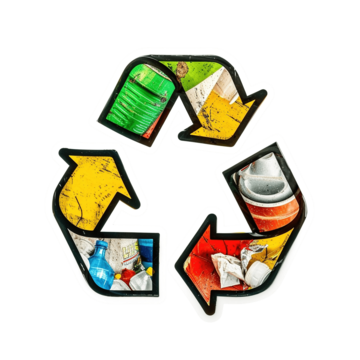KEY MESSAGE
- Kenya’s goal of a zero-waste economy relies on corporate commitment to waste reduction, innovation, and sustainable practices.
- Businesses must take responsibility for their products beyond consumer use, ensuring proper waste collection, recycling, and disposal.
- Businesses must separate hazardous and non-hazardous waste at the source, use color-coded bins, and ensure responsible disposal to licensed facilities.
- The government provides support for recycling facilities, waste-to-energy projects, and public-private partnerships, making sustainability a profitable opportunity.
Waste management is no longer solely a government responsibility; it is a collective duty that demands the active participation of businesses, consumers, and authorities. With the introduction of the Sustainable Waste Management Act, 2022, Kenya has taken a decisive step toward fostering a cleaner and healthier environment. This legislation mandates corporate entities to adopt sustainable waste management practices, ensuring that businesses play their part in environmental conservation and align with the United Nations Sustainable Development Goals (SDGs), particularly SDG 12 (Responsible Consumption and Production) and SDG 13 (Climate Action).

One of the most significant features of the Act is Extended Producer Responsibility (EPR), which mandates that producers, importers, and product packagers take responsibility for their products even after consumer use. This policy encourages businesses to participate in collective compliance programs to reduce the environmental impact of their products, supports eco-friendly product design by promoting recyclable materials and minimal waste production, and fosters the development of product end-of-life systems to ensure responsible collection, recycling, and disposal. By incorporating these measures, companies contribute to a circular economy aligned with SDG 11 (Sustainable Cities and Communities) and SDG 9 (Industry, Innovation, and Infrastructure).
Under the Act, private companies are required to develop a three-year waste management plan and submit annual reports to the National Environment Management Authority (NEMA). These reports must outline the quantity of waste generated, methods of waste disposal and recycling, and recovery efforts. By maintaining comprehensive records, companies can track sustainability progress while ensuring transparency and accountability in environmental conservation.
The act also requires companies to ensure proper waste segregation through separating waste at the source into hazardous and non-hazardous categories and the use of color-coded bins for organic and non-organic waste to facilitate sorting. To prevent illegal dumping companies are requested to ensure proper disposal at licensed waste facilities or through approved waste service providers. Failure to adhere to these guidelines can lead to severe environmental damage and legal consequences for businesses.
The government has introduced strict penalties for businesses that fail to comply with the Act, including fines of up to 5% of the company’s net income or KES 5 million, whichever is higher; personal fines of KES 200,000 for company officers responsible for waste mismanagement and / or continuous daily fines until corrective measures are taken. These penalties serve as a strong deterrent against negligence, ensuring that corporate entities prioritize environmental responsibility.
While non-compliance carries a heavy cost, businesses that embrace sustainability can benefit significantly. The government provides financial incentives for companies investing in recycling and waste recovery facilities; Waste-to-energy projects, such as converting waste into electricity or fuel; Public-private partnerships in waste management initiatives. These incentives make sustainability not just a legal obligation but also a profitable business opportunity.
Kenya’s transition toward a zero-waste and circular economy requires active corporate participation. With the backing of the Sustainable Waste Management Act, 2022, companies must shift from waste generators to sustainability champions. By taking decisive action today, businesses can ensure compliance, environmental protection, and innovation in waste management—ultimately contributing to a cleaner, healthier Kenya and advancing progress toward the UN Sustainable Development Goals.


